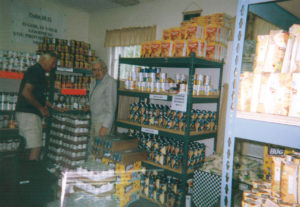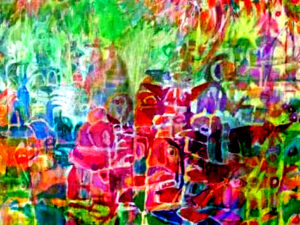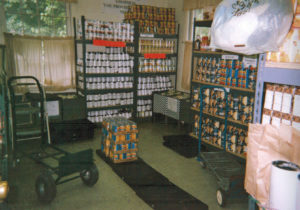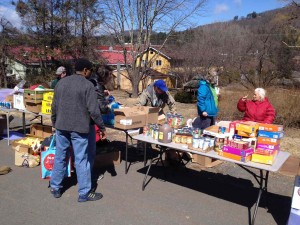Politicians – the Season Begins Again!
The political season begins again. In Woodstock, the politicians come calling. They knock on the door – their smiles open, their outfits perfect.
And, they don’t want to hear any questions – not from me, anyway.
I answer the door and listen to their message. I’m waiting to pounce, really. Because, I know they don’t know anything about hunger in our area.
And, I do know about hunger in our area.
The minute I open my mouth, they start to run for it.
Well, not so fast politician. Not so fast. You can’t leave my front door without taking a copy of one of my books with you.
I really know more about the economics of this area than they know. I know about children who go to school hungry. I know about families who routinely choose between food and transportation, food and housing, food and healthcare.
The politicians know their dance is up for today. Because I know about homelessness. I know the difference between shelter and housing.
Woodstock is a community where people working here come from somewhere else.
Each year, I figure that some kind of message will go out and no politicians will knock on my door. I’m wrong every year.
So, I sit – waiting to pounce.
Lord, I apologize. I simply can’t help myself. Someday, I’m going to apologize and know its the last time because I won’t act this way next time. I’d be lying to you now, Lord, if I even pretended that I won’t do it again.
I love pouncing on these people who knock on the door. I love to tell everyone how hard it is for the elderly to get food when their shoulders and knees don’t work anymore. I love to talk about friends I have who don’t drive anymore and who live in a food desert.
Lord, as seniors, we routinely pay more, get less, and do without. The without part comes because we’re outliving our savings.
I feel like everyone needs to know these things. How are the politicians going to know about them if I don’t tell them? I’ve convinced myself that its part of my job as a food pantry volunteer.
Food pantries are mostly hidden services. People shopping at one certainly don’t tell anyone where they get their groceries. And, the volunteers don’t talk either.
In the beginning, I was bothered about this but I’ve come to realize that food pantries are places where miracles happen. And, miracles are much easier if no one knows about them.
Lord, on behalf of everyone who shops or volunteers at a food pantry, I offer gratitude for the many miracles You perform on our pantry day.
And, Lord, thanks for sending these politicians over to my house every voting season. I love to pounce and then send them away with my books.
Thank you again Lord. I offer gratitude on behalf of everyone who shops or volunteers at a food pantry.
Amen
Thanks for reading this article! If you enjoyed it, check out some of the older articles. Hunger is not a Disease is an fascinating story about hunger in a small town food pantry. This blog has been relating stories and events for ten years!
I’m amazed when I read this. I never, in my wildest dreams, thought I would be writing about hunger and homelessness for over 10 years. And yet, here I am, plugging away!
What a journey this blog has been – and continues to be.
What was I thinking?
Please share this article with your friends and family. Forward it to your preferred social media network and post it on Facebook even.
Check out my books on www.thurmangreco.com. The website is being repaired so contact me at thurmangro@gmail.com to purchase one or more of the books.
Let’s Live with Thurman Greco is a program aired weekly on Woodstock’s own educational TV channel 23. This show is an informative, upbeat hour with no rehearsals. Some segments support the blog information and highlight Reiki Therapy, Hand and Food Reflexology, and other wellness subjects.
Guests are various people whose lives have brought them to Woodstock for a day, a week, an hour, a decade, or more. I can truthfully boast that guests report they enjoy the experience.
Let’s Live has been running for over 15 years with an occasional intermission now and then.
Enjoy interesting and fun programs while getting a peek into Woodstockers being themselves. Search “Let’s Live with Thurman Greco” on YOUTUBE and check out the ever growing list of videos.
Please contact me at thurmangreco@gmail with comments or questions.
This Thanksgiving – A Blessing of Opportunity
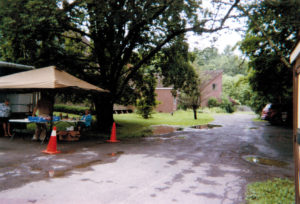
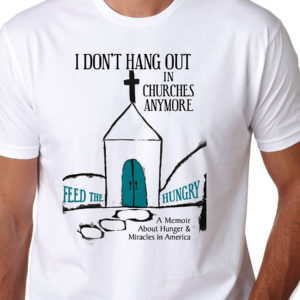
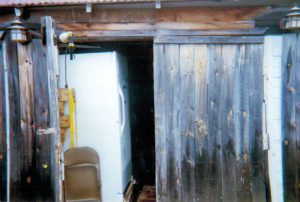
This Thanksgiving I’m grateful for the clothes on my back.
This Thanksgiving I’m grateful for my health.
This Thanksgiving I’m grateful for food which is available to me and to those who rely on the resources and generosity of others for the basic necessities we need to continue our lives.
The available food reminds me that we all live in the abundance of this time and place.
Thanksgiving, for me, is an opportunity to welcome the coming new year: hope and new beginnings arrive in January. The energy of this Thanksgiving gives me strength to gather energy for that prayer.
I’m holding on to the healing, wellness, and regeneration we will all experience as the Pandemic finally moves on.
I’m waiting for the blessings which will come my way as the Pandemic exits and leaves space for the new reality we will experience in its place.
And, I have to admit, I’m excited to experience our new reality. In my heart of hearts, I feel we’re never going back. We’re going forward, instead, to something new and different and better.
I’m grateful to be here, to be connected to all the efforts of the many people working for those who need food and housing. I appreciate the support I continue to receive from people I’ve come to know in this world.
This Thanksgiving I’m grateful for you. I feel a kinship in your readership so that, in my search to spread the word about hunger in our country, I know that I am never alone.
Thank You.
Please forward this article to your preferred social media network.
Thurman Greco
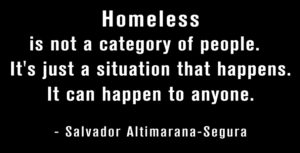
Paul, Duct Tape, and Homelessness
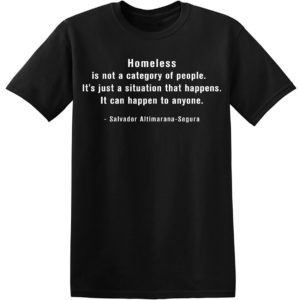
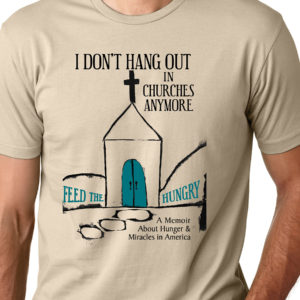
Paul has been on my mind all week.
One of my oldest friends, I knew him and worked with him when I worked and lived in Virginia – just outside Washington D.C.
Back then, we had Kelly Girls. Paul was my very best Kelly Girl. I could send him anywhere – well, not to the male chauvinist lawyer who would only pay for a cute legal secretary. But all the others loved his work.
He showed up on time for his assignments and he turned out a perfect work product. He was a bargain. Whatever he did, he made the client feel that Paul gave more than the money’s worth for every job done.
Everyone knew Paul was homeless. Nobody cared. He was the best typist out there. (This was before computers, you understand.) A quality work product counts for a lot when it comes time to pay the bill, after all.
So why have I been thinking about Paul all week? It was the Duct Tape that did it. My watch band broke and I need the watch. I drove over to Genter’s Jewelry Store in Saugerties and discovered a “for rent” sign where the “open” sign used to be. Mr. Genter always fixed everything . He didn’t care whether it was a watch band, a clock, a necklace.
He also sold silver and gold chains at bargain prices. And, he custom designed a coin for me. His work was exacting. Genter’s was my go-to destination for all things jewelry.
Genter’s is a statistic of the Coronavirus. With Mr. Genter gone, what was I going to do? I physically grieved when I saw the sign in the window.
I went straight for the Duct Tape. I now wear a watch held together with Duct Tape. I’m getting used to it, actually. My sense of urgency diminishes a little more each day.
I’m sure I’ll get along just fine with the Duct Tape. Paul Did.
Duct Tape adorned most of Paul’s clothes and anything else he used. Duct Tape held Paul’s shoes together. Duct Tape held the watch on Paul’s arm. Duct tape even kept Paul’s eyeglasses going. Finally, Duct Tape held Paul’s winter coat together.
So, following in Paul’s example, Duct Tape will keep my fitness watch going.
I rather like my new Duct Tape look. And, I like remembering Paul. He always made me smile. And, smiles these days are hard to come by.
Thanks Paul! You set a good example. This Duct Tape will work until I can find Mr. Genter, just as Duct Tape held your shoes together until you could find a newer used pair of shoes.
And, thank you for reading this article. Please forward it to your preferred social media network.
Thurman Greco
Woodstock, New York
PS: You can order one or more of the fancy T-shirts pictured in this post today at :
www.thurmangreco.com.

I also wrote about Paul in “No Fixed Address.”

Hungry and Homeless Now
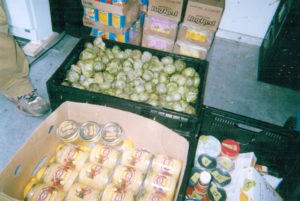

The food pantry is closed for business and will not open today.
Where will the hungry and homeless go now?
It’s Wednesday, the pantry day in Woodstock. Weekly, the food pantry attracts several hundred hungry and homeless people to the basement of a local church where they experience community, gratitude, healing, and a three-day-supply of shared food. The isolation often felt by hungry and homeless people is softened in the pantry. One thing the soul longs for is connection.
As people travel down their life path to the pantry, they lose things. One of the most soul-strangling downsides of this new-found simplicity is isolation experienced as people become cut off from their community. This experiences always changes reality.
When people no longer fit in, their voices become smaller and smaller and smaller until, finally, all is silent.
The rule is this: As the community for the hungry and homeless diminishes, so diminishes the support system.
All things are connected and intertwined but we have a difficult time remembering this when we are in our most alone circumstances in life. With assistance, we begin to recall our spiritual connections and know we are not along, not forgotten.
But, with the Coronavirus, this is very challenging. A few things are in play here.
First, for those needing to shelter in place, the main question is this: ” Where will I go?” Sofa surfing won’t happen anymore. The cemetery will work as long as it doesn’t snow or rain.
Second, a person without food can think of nothing else: “Where can I get food?”
For the hungry and homeless person in Woodstock, that focus is real because the food pantry closed.
At a time when the people need this food the most, the pantry is closed.
“Where can I get food?”
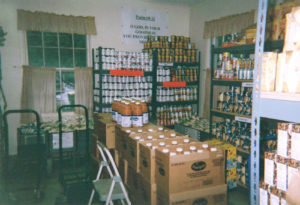
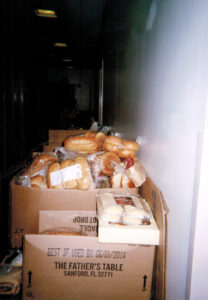
Thank you for reading this blog post!
Please refer it to your preferred social media network.
Thurman Greco
Woodstock, New York

Preventing Senior Hunger

For years, I’ve been blogging and writing books about hunger in America in general and senior hunger specifically.
Senior hunger is not going away anytime soon.
If you read my blog posts, then you are probably interested in senior hunger. Recently I came across a guide which you will want to read.
To learn more about senior hunger, access it here: https://onlinegrad.baylor.edu/resources/seniors-food-insecurity-hunger/
Thanks for reading this article and thanks for your interest and action.
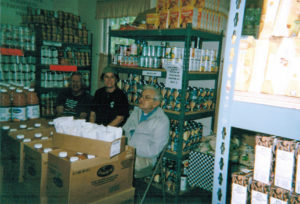
I hope you’ll not only read this article but will also share it wherever you feel it might be appropriate.
This new resource may be of interest to readers everywhere. The goal is to help open a dialogue in our country about senior hunger.
Thank you for your time and thank you for your concern about seniors and hunger.
Thurman Greco


Please share this post with your preferred social media network.
Abundance 1: What Does it Mean to be Hungry?
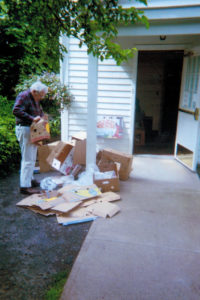
Abundance. What does it mean to be hungry?
For starters, it means you don’t have the money to buy the food you need for the next meal.
For one other thing, it means getting put in a category, or two, or even thirty. And, getting labeled. When the economic downturn began around 2007, new categories and labels appeared weekly, daily even. Journalists, politicians, social workers, sociologists, writers, created new categories as they related stories about hungry and homeless people. Stories about hungry people appeared in new ways and different situations.
The irony: labels created other labels. Simple truths seem endless and obscure the simple realities. Reduced to the lowest common denominator, a person is hungry without enough to eat. And a person is homeless without a roof to sleep under.
Abundance. Examining the label, hungry means missing meals. It means children only eat at school. Life is good when school offers a universal breakfast to all students. Lucy holds in a school with a backpack program so children bring home food on Friday afternoon for something to eat over the weekend.
Being hungry is not a category. It’s a situation. It can happen to anyone.
Hungry people are real. In the food pantry, I saw a person with a life instead of a label. Hunger and homelessness happened in many ways Every hungry or homeless person in the food pantry line has a unique story to tell which is beautiful, spiritually revealing, and heartbreaking. Each story explains what happens to a person when things spin out of control and the world falls apart. Invariably, there is a path to travel.
Questions surface:
“Why do I do what I do?”
“How did I get in this mess?”
“How can I escape?”
“Who will I be in my new life?”
The journey begins, not ends, when things spin out of control, the world falls apart, and the person hits bottom.
Past mistakes lead to a new, better place. It’s a good time to figure out what’s important and what isn’t. It means offloading things you can’t keep anymore.
With nothing left to lost, you have a setup for your new life and opportunity. For some, moving into a job means you pay taxes, rent, maybe buy some clothes, get retrained. This is good for your community, the state and the Fed.
For all the bottoming out, I never saw a person unable to fix the circumstances. Nobody hit bottom and then hung around down there. Everyone seemed to be working toward moving back into someplace or something. As far as I could tell, anyone deciding to commit suicide with a drug overdose or something else left town to end it all. I never saw or heard those stories play out.
Several shoppers died a socially acceptable death by cancer. What is a person to do when the job opportunities evaporate, the house forecloses, the savings spent, Social Security isn’t enough, and the person is too old to start anew.
I questioned the fate of several shoppers in the depths of mental illness. By the time a person was no longer communicating in a language understandable by fellow human beings, life becomes challenging. One young shopper spoke in tweets, whistles, hisses, and other undecipherable sounds. His mother, hidden in the background, did what she could. I always wondered what would happen to him when she died.
This is the heart of the matter because pantries are all about gratitude and abundance. Churches see pantries as an outreach project. Outreach is a popular word. Congregations support feeding the hungry, especially if the money goes to a group of children in Botswana, Somalia, India. The farther away, the better, it seems. When outreach is local things get dicey.
Pantry deniers describe people as freeloaders, homeless people as lazy, and all pantry shoppers as owners of upscale cars.
Whether the car is large, small, old, new, or a broken-down beater even, there’s a larger reality here. Whether the vehicle was driven around or lived in or both, it’s the last vestige of days gone by. By the time a person gets to temporary housing for the homeless, things are reduced to a few clothes, a blanket, hot plate, or maybe an electric skillet or crock pot.
For me, feeding hungry people in a food pantry is an act of gratitude. When volunteers feed hungry people, we own up to the amazing abundance in and around us. We also face our own spiritual hunger. Feeding the hungry in a food pantry addresses the divine hunger issue head-on.
Abundance surrounds both pantry shoppers and volunteers. Many churches and synagogues house a food pantry in a room in the basement. There is absolutely no excuse for anyone in our country to go hungry.
Not everyone recognizes abundance in a pantry. Not everyone recognizes the holiness of hunger. I always know those who see its grace and those who don’t. Those questioning who should be fed and who shouldn’t be fed have trouble with the sacred aspects of hunger.
To be continued…
Thank you for reading this article. Abundance 2 will continue in the next post.
Please refer this article to your preferred social media network.
Thurman Greco

